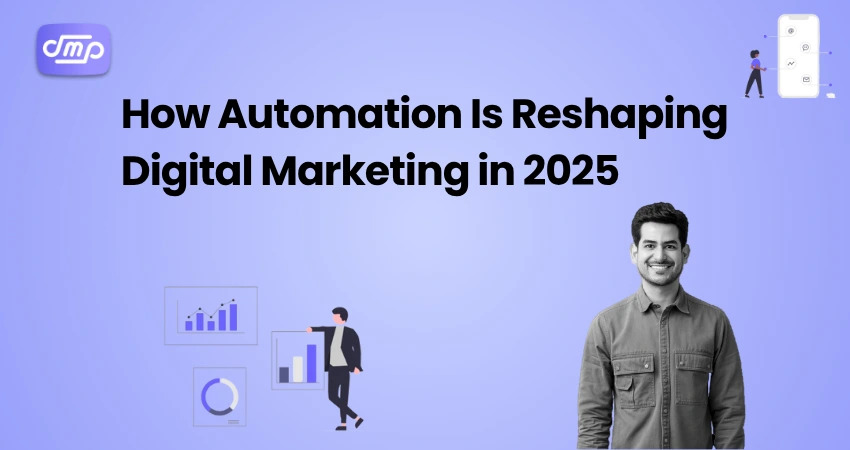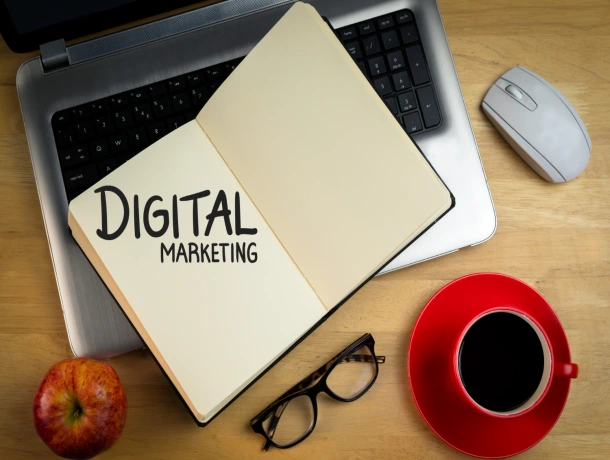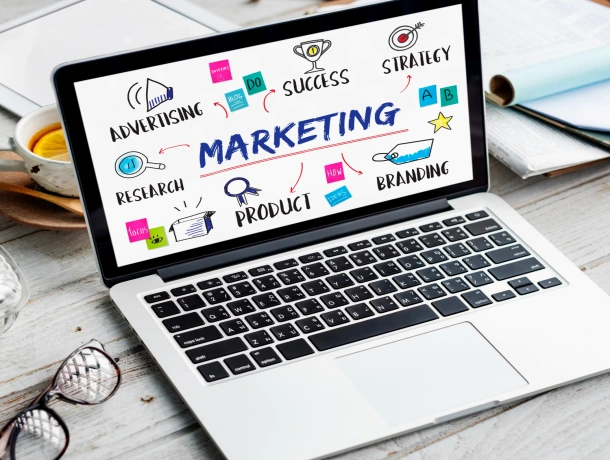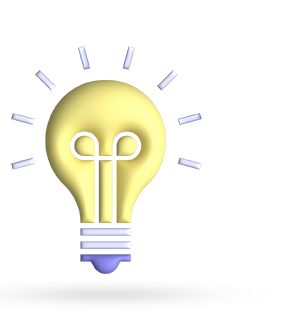
- July 7, 2025
- Digital Marketing, seo
- Digital Marketing
Table of Contents
Digital marketing in 2025 is experiencing a significant transformation—and at its core is automation. As consumer expectations increase and platforms advance, marketers are transitioning from manual methods to intelligent, automated solutions that yield results more quickly and efficiently than ever before.
The era of managing email campaigns, social media posts, and ad targeting entirely by hand is over. Nowadays, businesses are utilizing AI-driven tools, predictive analytics, and real-time personalization to maintain a competitive edge in a digital-first environment. This transition is not merely about time-saving; it is about developing smarter, data-informed strategies that can scale seamlessly.
With the ongoing growth of artificial intelligence, machine learning, and no-code automation platforms, digital marketing in 2025 is becoming more dynamic, responsive, and personalized than ever. From automated customer journeys to AI-enhanced content creation, the future of marketing is not only automated but also intricately connected with technology that comprehends consumer behavior in real-time.
What is Marketing Automation?
Marketing automation involves utilizing software and technology to enhance, oversee, and evaluate marketing tasks and workflows, eliminating the need for constant manual intervention. It enables companies to reach the appropriate audience, at the optimal moment, with the correct message, while alleviating the strain of repetitive activities such as sending emails, posting on social media, or segmenting customer data.
In the realm of digital marketing in 2025, automation has evolved to be more intelligent, intuitive, and seamlessly integrated into every aspect of the marketing funnel.
Current leading tools—like HubSpot, Marketo, ActiveCampaign, and emerging AI-driven platforms—extend beyond mere task automation. They utilize real-time user behavior, sophisticated analytics, and predictive modeling to provide hyper-personalized content and initiate highly targeted campaigns.
Some prevalent applications of marketing automation encompass:
- Email marketing sequences
- Customer journey mapping
- Lead scoring and nurturing
- Social media scheduling
- Automated ad management
- Dynamic website content
In the landscape of digital marketing in 2025, automation has transitioned from being a luxury or an advanced strategy to an essential requirement. Organizations that embrace automation not only conserve time and resources but also secure a competitive advantage by delivering timely, relevant, and impactful messages on a large scale.
Key Areas Where Automation Is Making an Impact in 2025

As technology progresses, automation is influencing almost every aspect of digital marketing. From acquiring customers to retaining them and analyzing data, automation is not merely improving efficiency—it is fundamentally transforming how strategies are developed and implemented. Let us examine the primary areas where automation is altering digital marketing in 2025.
- Email Marketing: Automation tools have advanced to the point where they can send highly personalized and behavior-driven email campaigns. Artificial Intelligence can identify the optimal time for sending, create relevant content, and even modify subject lines to enhance open rates—all in real time.
- Social Media Management: Scheduling tools have transformed into intelligent assistants. In 2025, automation platforms can suggest the best times for posting, curate content, monitor engagement trends, and even address basic inquiries through AI-driven chatbots—enhancing brand visibility without the need for constant human intervention.
- Paid Advertising (PPC): Paid advertising platforms such as Google Ads and Meta Ads are utilizing machine learning to automate bidding strategies, audience segmentation, and A/B testing. In the realm of digital marketing in 2025, ad automation guarantees that your budget is optimized for maximum ROI while reducing the need for manual adjustments.
- Lead Nurturing and Scoring: Automation platforms evaluate behavioral signals to assign lead scores and initiate personalized follow-ups. Marketers can create intricate, automated customer journeys that adapt dynamically based on a user’s interactions across various channels.
- Chatbots and Customer Service: AI-driven chatbots have become commonplace in digital customer experiences. These bots manage everything from product inquiries and bookings to post-sale support, providing 24/7 assistance that increasingly resembles human interaction.
- Reporting and Analytics: Manual reporting is now obsolete. Current automation platforms offer real-time dashboards, predictive analytics, and summaries of campaign performance—enabling marketers to make data-driven decisions more swiftly than ever before.
Benefits of Marketing Automation in 2025

As marketing channels become increasingly intricate and customer expectations escalate, automation has emerged as an essential resource for businesses striving to remain competitive. In the landscape of digital marketing in 2025, automation transcends mere time-saving; it focuses on providing smarter, more personalized experiences on a large scale.
- Enhanced Efficiency and Time Savings: One of the most immediate advantages of automation is its capacity to simplify repetitive tasks. Email follow-ups, ad scheduling, content posting, and lead segmentation can now be performed without manual intervention, allowing marketers to concentrate on strategy and creative direction.
- Improved Personalization: In 2025, automation is propelled by AI and data. Marketers can present content customized to a user’s behavior, preferences, and position in the sales funnel. This degree of personalization enhances customer engagement, fosters trust, and boosts conversion rates.
- Better Lead Management: Automation has revolutionized lead scoring, nurturing, and routing. Platforms can evaluate lead quality in real time and initiate relevant campaigns that guide potential customers through the funnel with minimal manual effort.
- Real-Time Decision Making: With integrated analytics and dashboards, automation empowers marketers to make quicker, informed decisions. Campaigns can be modified in real time based on performance data, facilitating greater agility in a rapidly changing market.
- Scalability Without Losing Quality: Whether managing 100 or 100,000 contacts, automation guarantees that every interaction remains relevant and timely. It enables businesses of all sizes to expand their marketing initiatives without compromising customer experience.
- Consistent Brand Messaging: Automation ensures consistency across various touchpoints—from social media posts and emails to advertisements and chatbots—maintaining a strong and unified brand voice.
Challenges and Risks of Over-Automation
While automation offers considerable benefits, it also presents its own unique challenges. As we adopt more advanced tools in digital marketing in 2025, it is vital to find the appropriate equilibrium between efficiency and authenticity. An excessive reliance on automation can lead to negative outcomes if not executed with care.
- Loss of Human Touch: Automation can occasionally render interactions robotic or impersonal. The overuse of templates, chatbots, or auto-responders may save time, yet it risks alienating customers if it lacks empathy or relevance. Establishing authentic human connections is crucial for fostering trust and brand loyalty.
- Tool Dependency and Technical Glitches: A significant reliance on automation platforms can result in disruptions if a tool malfunctions or integrations fail. Companies must develop contingency plans and ensure that systems are consistently updated to avert breakdowns that could impact campaigns or customer experiences.
- Generic or Repetitive Content: In the absence of careful oversight, automation can produce repetitive messaging or irrelevant content. While AI-driven recommendations are powerful, if not monitored, they may lead to experiences that feel stale or excessively sales-oriented.
- Data Privacy and Compliance Risks: As automation tools manage substantial amounts of personal data, businesses must adhere to privacy regulations such as GDPR, CCPA, and other evolving global standards. A single incident of data misuse can tarnish a brand’s reputation and lead to legal repercussions.
- Misalignment Between Strategy and Automation: Automation should complement marketing strategy rather than replace it. Over-relying on automated tools without clear objectives, audience insights, or content planning can result in disjointed campaigns that fail to resonate.
In digital marketing in 2025, the essential approach is to utilize automation as an enhancement, not a replacement.
Future Trends in Marketing Automation
As marketing technologies continue to advance, automation is becoming increasingly sophisticated, predictive, and adaptive. Looking forward, several significant trends are poised to influence the future of digital marketing in 2025, rendering campaigns not only quicker and more intelligent—but also more focused on human engagement.
- AI-Driven Predictive Marketing: Machine learning is empowering marketers to foresee customer behavior before it occurs. Predictive algorithms scrutinize previous actions and patterns to ascertain which content, product, or message a user is likely to interact with next—facilitating proactive marketing rather than reactive approaches.
- Hyper-Personalization at Scale: Personalization has evolved beyond merely inserting a customer’s name in an email. By 2025, automation tools will be producing real-time, context-specific content customized to individual user behavior, location, preferences, and timing—providing unique experiences to thousands simultaneously.
- Voice and Visual Automation: With the increasing popularity of voice assistants and visual search, marketers are automating content and campaigns tailored for these formats. Voice-activated advertisements, voice search optimization, and automated image recognition tools are becoming integral components of the digital marketing arsenal.
- Integration of No-Code and Low-Code Tools: Marketing teams are progressively embracing no-code/low-code platforms that enable them to create automated workflows, chatbots, and dynamic landing pages without extensive technical assistance. This democratizes automation and empowers marketers directly.
- Automation-Driven Content Creation: AI writing assistants, video generators, and image tools are assisting marketers in streamlining the content creation process. While human oversight remains essential, automation is expediting the time required to conceptualize, produce, and disseminate content across various platforms.
- Real-time Customer Journey Mapping: Automation in 2025 enables marketers to visualize and respond to consumer journeys in real time. As customers interact with various channels, automation solutions dynamically alter the experience—whether it’s displaying a product ad, sending a retargeting email, or revising a recommendation.
These developments are more than just updates; they signal a fundamental shift in how brands approach digital marketing in 2025. The future involves combining technology, data, and creativity to provide faster, smarter, and more impactful marketing experiences.
How to Incorporate Automation into Your Digital Marketing Strategy
Successfully utilizing automation involves more than merely adopting the latest technologies—it requires a strategic approach that aligns with your objectives, target audience, and brand identity. In the realm of digital marketing in 2025, the most successful automation strategies are those that harmonize efficiency with personalization, as well as technology with human insight.
- Establish Clear Marketing Objectives: Prior to implementing automation, it is crucial to define your primary goals. Are you looking to generate leads, nurture current customers, enhance retention, or boost sales? Clearly defined objectives assist in selecting the appropriate tools and workflows that will support your overarching marketing strategy.
- Select Appropriate Automation Tools: Not all platforms are equal. Depending on your requirements, you may choose comprehensive solutions like HubSpot or ActiveCampaign, or specialized tools for email, social media, CRM, or analytics. When selecting platforms, consider factors such as scalability, ease of integration, and data security.
- Outline the Customer Journey: Gaining insight into how your audience transitions from awareness to conversion is essential. Outline each phase of the buyer’s journey and pinpoint where automation can improve the experience—such as sending follow-up emails, retargeting advertisements, or providing personalized content at optimal times.
- Balance Automation with Human Engagement: Automation should facilitate interactions, not eliminate them. Ensure there are opportunities for customers to engage with real individuals—particularly when addressing complex inquiries, complaints, or high-value leads.
- Evaluate, Measure, and Refine: Ongoing testing is vital to maximize the effectiveness of your automation strategy. Employ A/B testing, assess metrics such as open rates, click-through rates, and conversions, and regularly refine your workflows. The advantage of automation in digital marketing in 2025 is that it enables real-time modifications based on current data.
- Train your team: Invest in training your marketing team to use automation tools efficiently. A trained team can ensure correct setup, fix issues, and investigate advanced features that can help you gain a competitive advantage.
Integrating automation into your digital marketing plan does not replace marketers; rather, it empowers them. When done correctly, automation can help you deliver timely, relevant, and engaging experiences to your audience at scale.
Conclusion
The rise of automation is revolutionizing digital marketing in 2025, empowering businesses to move faster, work smarter, and connect more meaningfully with their audiences. From AI-powered personalization and predictive analytics to real-time customer journey mapping, automation is no longer just a helpful tool—it’s a critical component of modern marketing success.
But while the technology is powerful, it’s the strategy behind it that truly drives results. Brands that thoughtfully integrate automation—balancing efficiency with empathy, and data with creativity—will stand out in an increasingly competitive landscape.
As the digital world continues to evolve, one thing is clear: the future of marketing belongs to those who embrace automation not as a shortcut, but as a smart, scalable way to deliver exceptional customer experiences.











